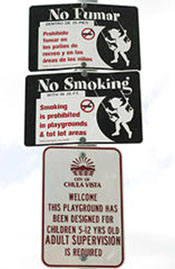Bilingual Skills Offer Job Marketability in an Ever Shrinking Global Marketplace
By Emily Sanderson
|
|
 | |
| If you are not bilingual and you find that those with whom you associate professionally speak one foreign language more than others, learning that language yourself can increase your job marketability. |
Whether you were raised speaking a language other than English or you acquired language skills through your education or other life experiences, these skills will help you in working with clients or business associates that speak this language. The development of efficient transcontinental shipping methods in the latter half of the 20th century, not to mention the advent of the Internet, have played a significant role in making the world a smaller place.
Whether you speak the language natively or you learned it from visiting a foreign country in the Peace Corp — whether you were an army brat or your parents were ''ex-pats,'' you did a study abroad in college, or served an ecclesiastical mission, language skills are listed at the bottom of a resume in a separate category from professional affiliations or community involvement. These skills are important to emphasize and stand apart from your other qualifications.
The languages you speak are an element of your marketability when seeking a job. For example, in New York, Southern California, or Texas, your ability to speak Spanish can make or break your opportunity to find a job with a reasonable turnaround. On your resume, make sure to list the languages you speak in addition to English, no matter how obscure you think they are. These languages could make the difference for you when potential employers are weeding out their stacks of resumes. In addition to speaking a foreign language, your having an understanding of cultural peculiarities can be essential in being able to really connect with foreign business associates, or a foreign customer base.
Sometimes positions that require extensive bilingual speaking skills, such as a call center position, require taking a test to assess your language skills. If a significant portion of a potential employer’s customer base, employees, or business partners speak a foreign language, the potential employer will need an idea of the level of your language skills and whether your skills include writing, speaking, or both. If English is your second language and you were not raised in the United States, you may be required to pass the TOEFL test.
When seeking a professional job, bilingual skills in a professional work environment are often secondary to your industry specific qualifications gained in school and in your work experience so far.
There are some things to keep in mind when it comes to your bilingual resume that might be different than other resumes. First of all for a job that requires bilingual skills, you might be catering to an employer who is also bilingual. If this is the case, consider putting your resume in one language on the front of the page, and in the second language on the back of the page. This might be a good way to actually show that you can speak the language. Also, be sure that you are prepared for the interview. You might need to speak in the second language during the interview, so you want to make sure that you are prepared for this and that it does not take you by surprise. With the right bilingual resume, you can capture that perfect bilingual job.




